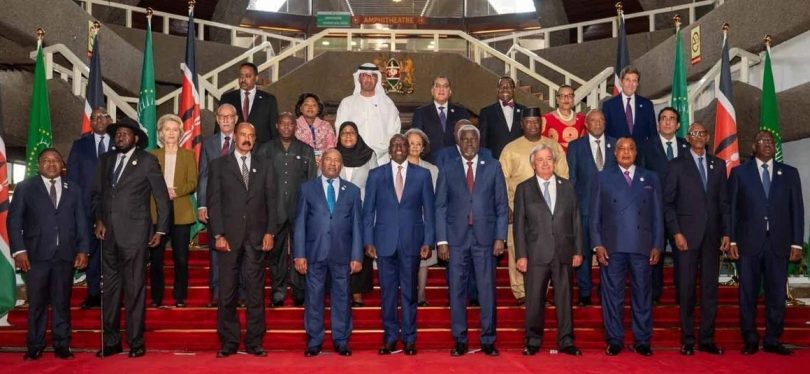The leaders of African states, participating in Africa Climate Summit held in the Kenyan capital, have issued a declaration at the conclusion of the three-day event, calling for introduction of a ‘global carbon tax’ to fight the climate change.
The Nairobi Declaration, signed by leaders from the continent of 1.3 billion people, calls for an introduction of a special levy on fossil fuels, aviation, and shipping, that would require world’s biggest emitters of greenhouse gases to commit more resources to help poorer nations.
The declaration also mentioned the unfulfilled pledge of $100 billion annually to developing nations in climate finance, made 14 years ago.
Africa reportedly receives just 12% of the $300 billion it needs annually to cope with the effects of climate change, despite possibly being among the most vulnerable to its impact.
The declaration also called for the vast mineral wealth extracted in Africa to be processed there as well, noting that “decarbonizing the global economy is also an opportunity to contribute to equality and shared prosperity.”
“No country should ever have to choose between development aspirations and climate action,” the document stated.
The signatories of the Nairobi Declaration said that the document will be used as the basis for their negotiating position at November’s COP28 summit in Dubai.
Africa receives only about 12% of the $300 billion it needs annually to deal with the effects of climate change, despite possibly being one of the most vulnerable to its impact.
According to Kenyan President William Ruto, $23 billion in commitments was made during Africa Climate Summit, which mostly focused on debates about the potential mobilization of financing to adapt to increasingly extreme weather, conserve natural resources, and develop renewable energy.























